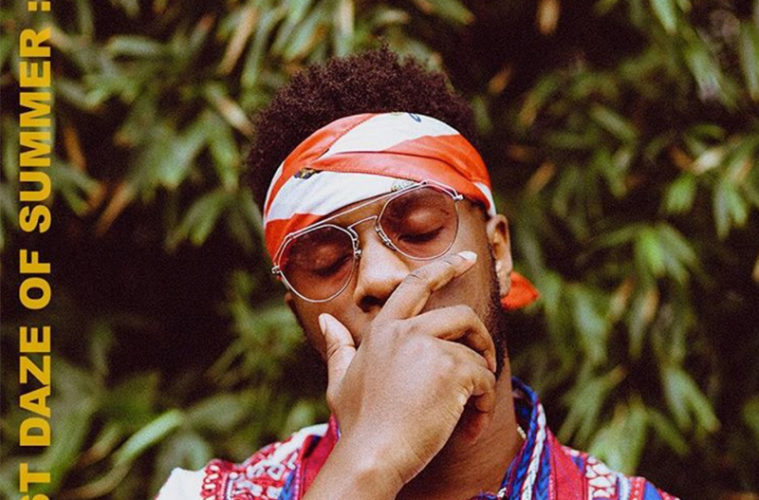After making a name for himself as a hit-making producer, Maleek Berry wants to go on and make another one as a hit-making artist.
“Kontrol” is the quintessential “hot line made into a hot song”, it leverages a line from W4’s 2012 banger of the same title, and puts the Star Boy-affiliate in a great position to do just that. Last Daze of Summer, his debut EP, goes one step further and 6 songs farther, with a collection of uptempo records with undeniable hit potential.
LDOS was released on the last day of September, so calling the EP the “first days of Autumn” would have been more chronologically accurate. But musically speaking, it is right on message – the project’s sunniness and high energy enable it capture that fun and flighty summertime feel. The one aspect of summer that LDOS doesn’t capture however is temporal, carefree love – the kind you just might catch an STD from but it won’t matter if it goes away before the summer ends. Rather, on “Let Me Know” the singer expertly details a year-long love chase that he hopes to make official before the summer runs out, that way he wouldn’t have to keep chasing till summer ‘17. Unfortunately, his love interest is doing her best Neo-in-the-Matrix impressions as she dodges Maleek’s questions – am I more than a friend to you? Do you feel the same way that I do?
If you want to be an ITK about it and take “Eko Miami” literally, that song is built around a popular slang that’s slightly inconsistent with the idiosyncrasies of summertime as well. Miami is a dream summer destination for partygoers the world over but when I hear parties in Lagos, I think IJGB’s spending their winter breaks in island nightclubs more than I think of sweaty parties in the middle of rainy season. But if you listen closely, Maleek is simply advocating for a good time on any dancefloor you find yourself around Lagos or around the world even – you can make-believe the “partying like you’re in Miami” part if you want to. “Eko Miami” is the only record on LDOS with a guest feature, Gheko, and it’s not even a well-known one. For a producer with an artist contact list as thick as Maleek’s, the choice to introduce the world to his own sound rather than bringing them on board and getting drowned in theirs is instructive.
Instead the EP is specimen A of what a full-length Maleek Berry project will sound like. His shrill-like singing voice ping-pongs in the space between being clear and unmistakable and sounding like a God-made alarm clock. He wakes you as he beckons “baby wait oh” on “Lost in the world”, before going on to describe a love that went sour because his lover turned sharply towards materialism. Maleek writes the song more from the angle of pity for the lady rather than with regret over losing her, somehow getting you to pity that kind of woman if you spot her in your own life. That’s the best part of the way Maleek tells his stories – they’re relatable, they’re believable. You believe him on “Flexin” when he tells you that your girlfriend is the homie, now that he’s become the man. It’s the standard Nigerian artist’s come-up story, I know, but told in a way that Maleek’s more international audience would relate to, not to mention find it easy to dance to. And that’s the takeaway, if there’s anything you take away from this EP it’s that Maleek Berry wants the world to dance to his Afropop sounds.
Because so much of what is considered Afropop music lives in the clubs and lounges, pop music is so tightly interwoven with dancing and nightlife, especially in anglophone West Africa where Maleek’s style takes its roots. Even though LDOS is an exemption, by default, music that sounds better after 10pm than it did before isn’t appreciated for its lyrics and substance as much as it is for its production and the melodies. And almost by default as well, those are roles that producers traditionally either own or significantly contribute to in the song-making process.
But just because you can make good pop records doesn’t mean you can sing them as well or that you, as a performer, possesses that intangible x-factor required for those songs to connect with an audience. That’s why there’ll always be 1 successful producer-turned-artist like OJB Jezreel to 5 not so successful ones like, say, Laylow. I made that ratio up by the way, but what I simply cannot make up is how comfortable and ready-made Maleek sounds on his debut EP LDOS , so much so that you see him growing into OJB’s twenty or so percent in the years to come.


